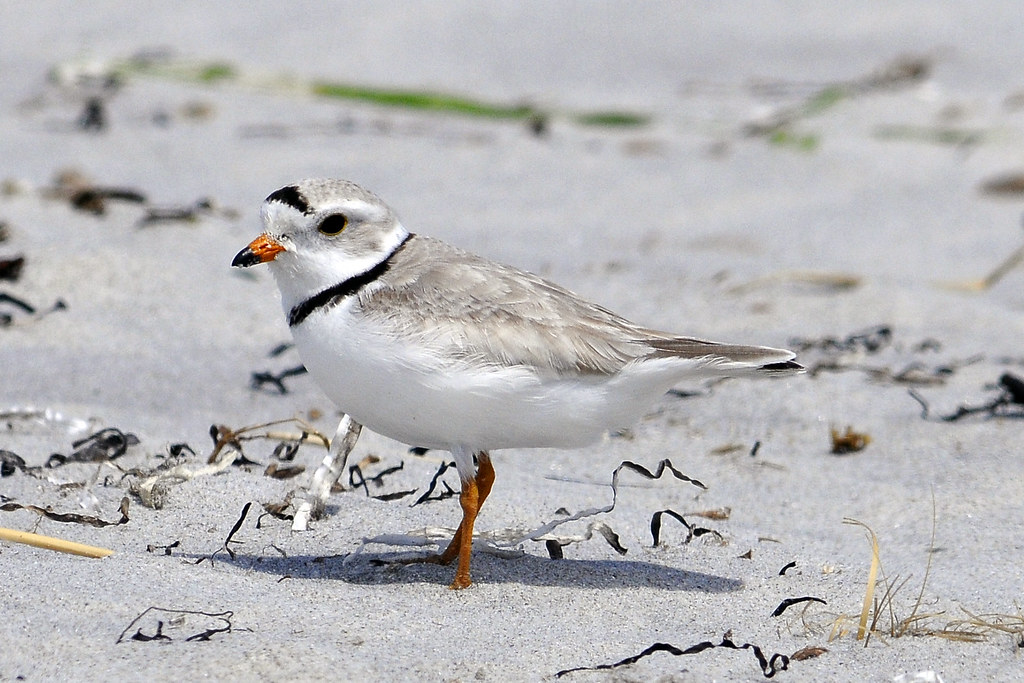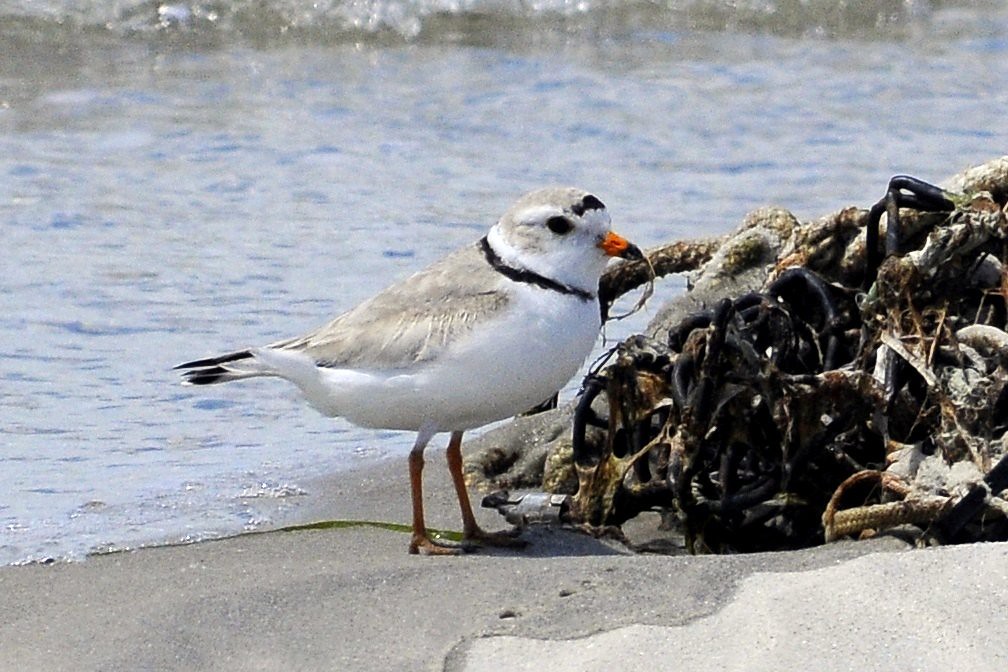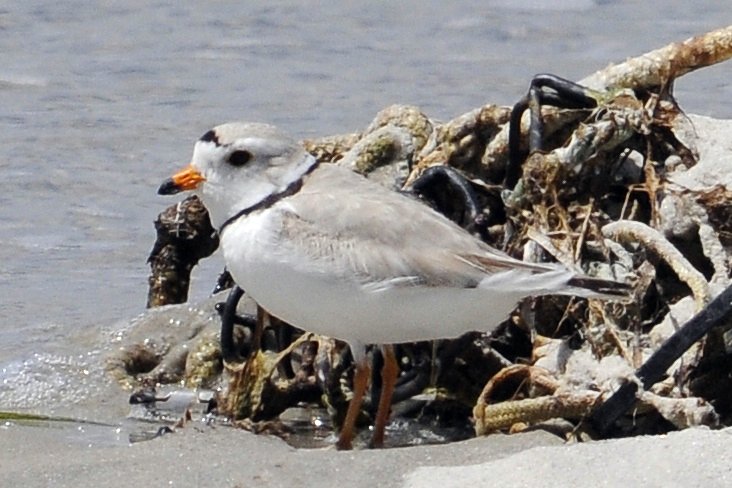Emotions ran high on both sides of the issue. There were many who felt they had an inalienable right to go for a walk on a beach whenever they wanted to. They were outraged that kite-flying, walking dogs, and Fourth of July fireworks were suddenly illegal. Other people were were so angry that they were ready to take up arms and shoot anyone who interfered with a Piping Plover's nest.
At the end of the summer, our precious Piping Plovers will fly south for the winter. Unfortunately, they spend the winter in the Gulf of Mexico, where billion of gallons of deadly oil await their arrival this year. According to the Boston Globe, "piping plovers are one species whose survival is threatened by the oil spill." If you've seen the pictures of oil soaked birds in the gulf, you can't help but despair. For twenty-five years we've helped the Piping Plovers struggle to avoid extinction, but we are helpless in the face of this disaster. I'm glad I got to see Piping Plovers this spring. I just hope I didn't see them for the last time.





I love Piping Plovers. The first one I saw was a fledgling at Quivera National Wildlife Refuge here in Kansas.
ReplyDeleteThe last couple of years I have looked forward to seeing these birds arrive. I hope they make it knowing that its wintering grounds spell doom for them.
ReplyDeleteWhat a sad sobering thought.